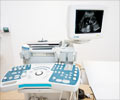- 91% of women use food supplements during pregnancy. Often, they used one to nine products simultaneously
- Supplement use during pregnancy was most prevalent in Finland and least prevalent in Italy
91% of the study’s female participants used food supplements, and there were typically one to nine products being used at once.
“Particularly in Finland, it was common to use more than one product simultaneously– as many as a fifth of the supplement users used more than three products at the same time,” says Doctoral Researcher Ella Koivuniemi from the Institute of Biomedicine at the University of Turku.
Using Dietary Supplements During Pregnancy
Food supplement use was most prevalent in Finland, where 98% of individuals reported using them, and least prevalent in Italy, where 83% of participants reported using them. The most popular supplement type was a prenatal multivitamin (taken by 76–91% of users globally). Compared to previous moms and women who smoked before becoming pregnant, first-time mothers and non-smokers were more likely to use food supplements.Need of Food Supplements During Pregnancy
The fetus’s growth and development, the mother’s increased tissue growth, and the expansion of the placenta all require more energy and nutrients during pregnancy. The majority of additional nutritional needs during pregnancy will be satisfied by a varied diet. To ensure adequate food intake, vitamin D and folic acid supplements are generally advised to be used throughout pregnancy. In addition to these, some pregnant women who are at risk of inadequate intake from their diet are advised to take nutritional supplements such as calcium, iron, and iodine. Excessive usage of food supplements at levels greater than those advised may also be harmful to the mother and fetus.Overdose of Dietary Supplements during Pregnancy
In Finland, only about half of vitamin D supplement users used it at the required levels and a third of them exceeded the necessary amount. In Great Britain, Finland, and Poland, 91-97% of supplement users used the recommended vitamin D supplement.Nearly all of the women who used dietary supplements (93–98% of users in various countries) also took folic acid supplements, which are advised to take during pregnancy. In Finland, only around half of women who took folic acid supplements during pregnancy followed the advised dosages, and a third went over the suggested amount.
Exceeding the Recommended Food Supplement Intake is Relatively Common in Pregnancy
In Finland, a third of the pregnant women exceeded the recommended intake of at least one food supplement. Moreover, the daily safe upper intake limit was exceeded in one or more nutrients by an average of 19% of the food supplement users. Magnesium supplements were used at doses that exceeded the daily safe upper intake in all of the countries.Varying Awareness of Food Supplement Recommendations During Pregnancy
Most study participants answered that they knew which food supplements (91%) and what doses of supplements (87%) they should consume during pregnancy. Nonetheless, three-quarters of the participants thought that multivitamin supplements are generally recommended during pregnancy, although this is not true.81% of participants were aware that folic acid is advised during pregnancy. In Finland, Poland, and Great Britain, only approximately 60% of the participants knew that vitamin D supplementation is advised during pregnancy in their own countries, whereas in Italy, a third of them believed incorrectly that vitamin D supplementation is advised during pregnancy in Italy.
“Although most pregnant women in all the countries believed that they were aware of the food supplement recommendations, in practice, the recommendations were not always adhered to. In terms of nutrients that are recommended to be supplemented; the intake was mostly sufficient but even excessive for a significant portion of the women,” says Associate Professor Kirsi Laitinen, who leads the Early Nutrition and Health research group of the University of Turku that implemented the study.
An online survey was used to gather the survey's data. Photos of the food supplements the participants use as well as detailed information about their dosages and usage patterns are included in the data. Based on the reported usage of food supplements, the daily consumption of vitamins and minerals from dietary supplements was determined.
The findings highlight the significance of discussing food supplement use during prenatal care so that excessive supplement use can be addressed as necessary. The findings also make it possible to create dietary recommendations that support the use of food supplements per the guidelines while pregnant.
Source-Medindia
















